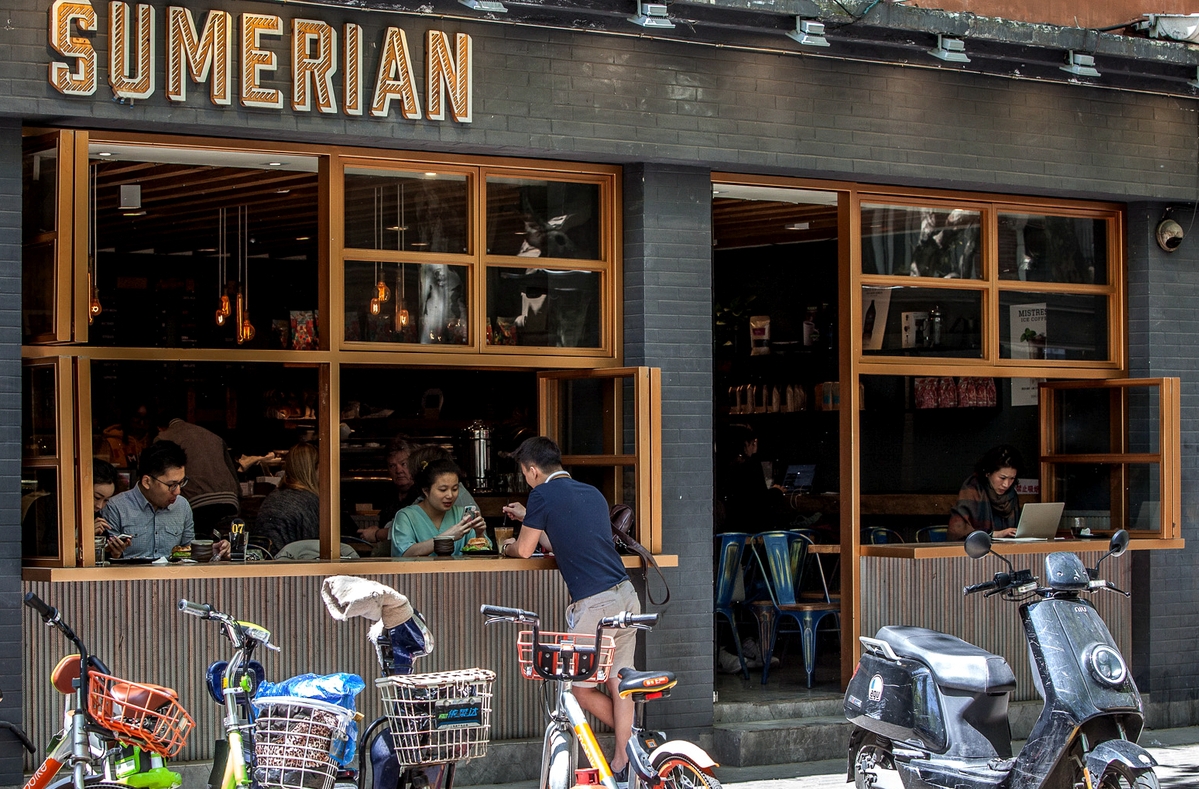Specialty shops find the right blend for success


On Nanjing Road in Shanghai, one of the city's main retail streets, long lines that form outside the Starbucks Reserve Roastery's huge building from 7 am are a common sight.
But just a few minutes' walk away on Shaanxi North Road, a narrower and quieter residential area, lies Sumerian, a specialty coffee shop.
When Starbucks opened its largest store in the world in the heart of the city last year, Dave Seminsky at his 15-square-meter Sumerian cafe was not intimidated by his neighbor, which occupies 2,700 sq m.
Seminsky opened his shop in 2012, when he came to China with United States technology giant Apple to help increase its retail presence in the country. At the time, Starbucks had been expanding in China for 13 years.
After a slow start and a lot of effort spent on educating consumers through free weekend coffee tastings and courses, Seminsky said his business finally picked up. Independent specialty coffee retailers such as Sumerian have mushroomed in recent years, especially in large cities.
"Many more local people, particularly in Shanghai, are opening coffee companies. A lot more local consumers aren't just visiting one coffee shop, but are giving multiple shops a try," Seminsky said. He added that he had seen one report that said Shanghai consumers alone account for almost 35 percent of the coffee drunk in China.
At Sumerian, water runs between interconnected glass globes and drips down through two beakers of coffee grounds. If customers are new to coffee drinking, baristas will ask them about their preferences before they make a decision.
Compared with coffee shop chains, these small independent shops have more flexibility and offer more diversity in the flavors of their products.
Seminsky said he imports coffee beans directly from growers around the world, from Ethiopia to Guatemala, Colombia to Indonesia. Because such businesses are smaller operations, they can often afford to import from areas where bigname companies cannot, due to the amount of coffee that large operations require.
The growing numbers of both coffee shop chains and specialty outlets have heightened competition in the Chinese market in recent years.
According to Starbucks, it opens a new store in China every 15 hours on average, and Seminsky said that the company has made an "indispensable contribution" to the booming specialty business.
"Starbucks has done a good job, as it has introduced a coffee-drinking culture to a tea-loving country", he said. Consumers who were introduced to coffee by Starbucks have now moved on to try other coffee shops and styles, he added.
And while many Chinese grab a latte from large chains during weekdays, at weekends they are spending time sipping cups of handmade premier coffee with their friends in small specialty cafes.





































